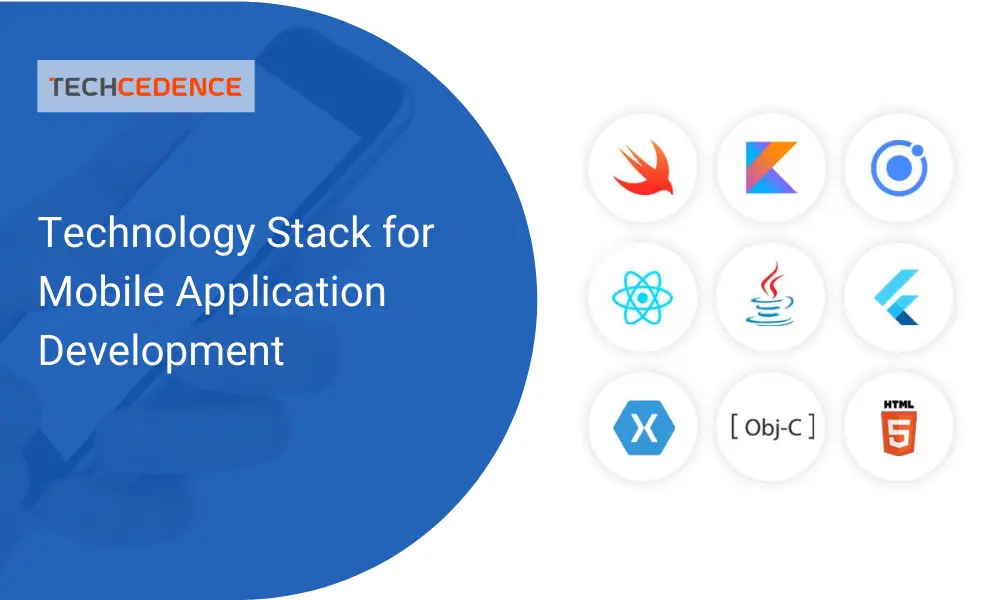
Categories : Technology
Author : Date : Jun 30, 2021
When you are developing a mobile application, the first challenge that you come across is choosing the right technologies. To develop a robust mobile application, it is important to understand the technical feasibility and choose the right technology stack. The mobile technology stack should be selected based on cost, and time for development. The technology stack plays a critical part in the success of the mobile app. Here are some advanced mobile technology stacks to build native and cross-platform applications.
Native App is developed specifically for a particular platform (say Android or iOS). Apple and Google provide development tools, interface elements and SDK to develop native apps.
To create a native iOS application, the following technology stack can be used.
An iOS application can be built using either Objective C or Swift programming languages. Objective C can be considered as an extension of C programming language and provides object-oriented capabilities. Developers with knowledge in object-oriented programming can go for Objective C.
Swift is a compiled programming language developed by Apple for developing iOS applications that run on iPhone and iPad. Swift is more functional, friendly and less error-prone.
Xcode is an integrated development environment that contains a suite of development tools for developing a native iOS app. XCode tool kit comprises of Xcode IDE, instruments and a simulator.
The iOS SDK is a software development kit developed by Apple and includes an application programming interface (API) that serves as a link between software applications and the platform they run on. It consists of tools for Apple’s touch screen interface and iPhone Operating System.
To build a native application for Android, the following technology stack can be considered.
Top programming languages for native Android mobile app development is Java or Kotlin. Java has been the official programming language for android app development until Kotlin was introduced and has vast tools and libraries to support android development. Kotlin was introduced by Google for android app development. It has numerous development options, simple and concise code makes it lightweight. It is interoperable with Java allowing to convert Java code into Kotlin.
Android Studio is the IDE for creating a native android app. It is popular among developers because it provides the fastest tools in addition to code editing, debugging, a flexible build system and an instant deploy system. It allows focusing on building unique and high-quality apps.
Android Developer Tools (ADT) is a plug-in by Google to provide full support for Android app development. In addition to coding support, ADT allows developers to use debugging tools, a graphical UI builder, emulators, and test automation support.
The Android SDK is a software development kit that includes tools for building, testing, and debugging Android applications. Developers must download the components of the Android SDK.
In a cross-platform approach, a mobile app is developed for multiple platforms. A single code base is used for multiple operating systems (say iOS and Android platforms).
There are different frameworks for cross-platform app development. Here are some technologies used to build cross-platform mobile apps. Based on the project requirement either of the below technologies shall be used.
React Native is a Javascript framework for developing a cross platform app that closely resembles a native app. The framework is based on React Library supported by Facebook. The application logic is written in JavaScript whereas UI is completely native. React Native’s live reload feature allows to build app faster and fix bugs immediately.
Xamarin is a cross-platform framework supported by Microsoft. It uses the C# programming language as a base for app development. Xamarin has a range of components and has IDE support. Xamarin allows sharing almost 90% of the code across multiple platforms.
Flutter supported by Google is considered the best tool to build cross-platform apps. Flutter uses Dart language for app development. Flutter SDK includes developing and debugging tools and unique set of widgets that make app development rapid and simple.
Read our blog on Cross-Platform App Development to know more about cross-platform technologies and frameworks.
Before choosing the technology stack identify your target users and the devices they use. Each of the technology stacks offers unique tools and components. Hire a mobile app development company to help you build a successful application.